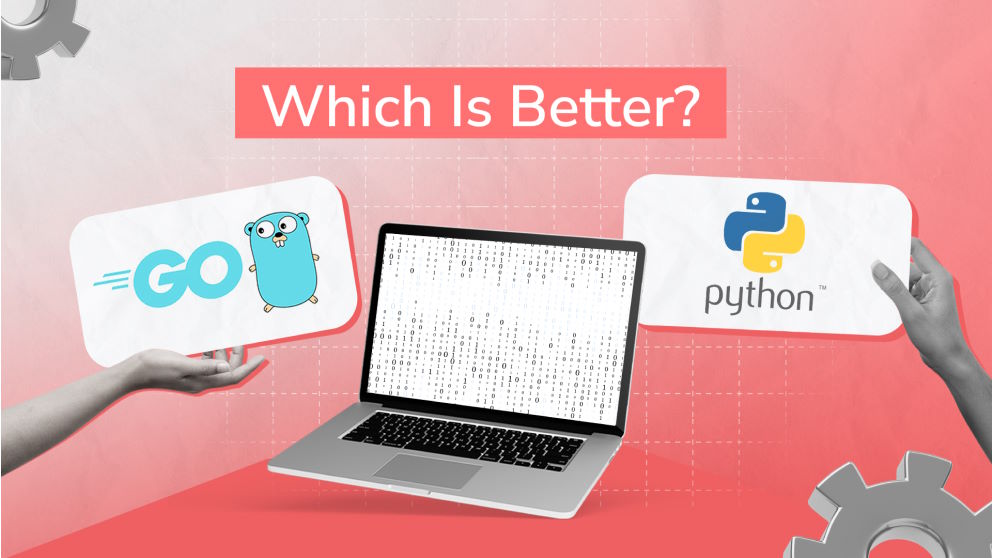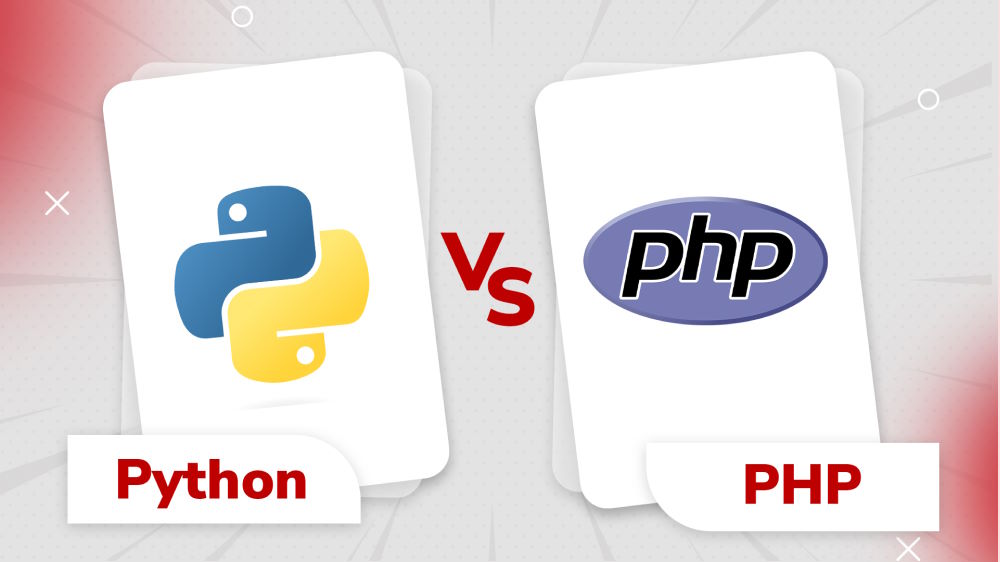
Python Development Services We Offer
Custom Python Software Development
Create your own tailored Python applications with advanced functionality to effectively address specific business requirements while ensuring long-term scalability.
Python Web Development Services
Deliver secure web applications and upgrade your existing web solutions to be high-traffic ready by using top Python frameworks like Django and Flask.
Python API Development
Design, build, and maintain APIs, ensuring seamless interoperability between different systems regardless of their underlying technologies.
Python for Data & AI Solutions
Leverage Python’s extensive libraries to build scalable AI-powered solutions designed to convert raw data into actionable business insights.
Migration & Third-party Integration
Handle risk-mitigated transitions and complex third-party integrations to ensure your desired app performance while maintaining data flow and system stability.
Cloud-based Solutions
Take advantage of the flexibility offered by AWS or Azure, design cost-effective cloud apps, and continuously monitor the progress for optimal performance.
Case Study
Trustana collaborated with Orient Software to develop an AI-generated text system to enhance product descriptions. The project aimed to streamline backend development and DevOps infrastructure to bring innovative AI solutions to market efficiently. Read our story.

Accelerate Your Success with Proven Python Expertise
Receiving focused attention and exclusive coder access with our full-fledged team of expert Python developers. The model supports long-term partnerships and offers flexible resource scaling.
Dedicated Python Team
Easily access and work with top-tier developers skilled in Python frameworks, tools, and libraries.
Seamless Team Integration
Collaborate closely with your existing team by following Agile and Scrum methodologies.
Flexible Scaling
Scale up or down based on your evolving Python project needs without long-term hiring commitments.
End-to-end Project Support
Provide assistance at every stage of Python development projects, from deployment to ongoing maintenance
Get a Free Consultation
Having an existing in-house team but missing some specialized expertise? Staff augmentation provides you with additional Python developers and flexible scaling to your needs, all without hiring complexities.
On-demand Python Experts
Strengthen your project team with needed positions, including senior developers, DevOps engineers, QA specialists, and more.
Rapid Team Expansion
Get quick access to Python devs without hiring hassle in days, not months.
Cost-effective Scaling
Follow a pay-as-you-go basis with no overhead costs related to full-time hiring.
Cultural & Technical Fit
Hire Python specialists who have both technical skillsets and work culture alignment.
Get a Free Consultation
For companies looking for a full-service outsourcing Python development solution, the model serves as a one-stop solution for all your software needs—from planning to deployment and beyond.
Full-stack Python Development Team
Have a fully functional PHP team to handle your entire development process.
Managed Teams & Project Roadmaps
Python talent work autonomously while keeping you updated at every step.
Security & Compliance Focus
Ensure top-tier data protection with ISO 9001 and ISO 27001 certifications.
Optimized Costs & Faster Delivery
Get high-quality development at competitive pricing and reduce time-to-market.
Get a Free Consultation
Dedicated Software Team
Receiving focused attention and exclusive coder access with our full-fledged team of expert Python developers. The model supports long-term partnerships and offers flexible resource scaling.
Dedicated Python Team
Easily access and work with top-tier developers skilled in Python frameworks, tools, and libraries.
Seamless Team Integration
Collaborate closely with your existing team by following Agile and Scrum methodologies.
Flexible Scaling
Scale up or down based on your evolving Python project needs without long-term hiring commitments.
End-to-end Project Support
Provide assistance at every stage of Python development projects, from deployment to ongoing maintenance
Staff Augmentation
Having an existing in-house team but missing some specialized expertise? Staff augmentation provides you with additional Python developers and flexible scaling to your needs, all without hiring complexities.
On-demand Python Experts
Strengthen your project team with needed positions, including senior developers, DevOps engineers, QA specialists, and more.
Rapid Team Expansion
Get quick access to Python devs without hiring hassle in days, not months.
Cost-effective Scaling
Follow a pay-as-you-go basis with no overhead costs related to full-time hiring.
Cultural & Technical Fit
Hire Python specialists who have both technical skillsets and work culture alignment.
Software Development Outsourcing
For companies looking for a full-service outsourcing Python development solution, the model serves as a one-stop solution for all your software needs—from planning to deployment and beyond.
Full-stack Python Development Team
Have a fully functional PHP team to handle your entire development process.
Managed Teams & Project Roadmaps
Python talent work autonomously while keeping you updated at every step.
Security & Compliance Focus
Ensure top-tier data protection with ISO 9001 and ISO 27001 certifications.
Optimized Costs & Faster Delivery
Get high-quality development at competitive pricing and reduce time-to-market.
Our Python Technologies & Frameworks
Python Web Frameworks
Flask Django Bottle Pyramid CherryPy
Database and ORM
SQLAlchemy SQLAlchemy-Utils Django ORM Pony ORM
Machine Learning and Data Science
PyTorch TensorFlow NumPy Pandas
Task Queue and Asynchronous Processing
Celery Huey Asyncio
Testing and Quality Assurance
pytest Hypothesis Doctest
Development Tools and Environments
Jupyter Notebook Docker PyCharm Poetry
Key Things to Know about Python
What Is Python?
Python is a general-purpose coding language created by Guido van Rossum. First released in 1991, it is one of the most popular programming languages nowadays due to its readability, simplicity, and versatility. Python is currently on its third major version with regular updates still being released.
Developers can use Python to perform a variety of programming and software development tasks, including back-end web and mobile app development, desktop app and software development, processing big data and performing mathematical computations, and writing system scripts (creating instructions that tell a computer system to “do” something).
How Does Python Work?
When developing in Python, you’re using an interpreted language. So, instead of translating your source code to machine code, you translate it into bytecode, which is a low-level set of instructions that can be executed by an interpreter.
Most personal computers have their own Python interpreter installed in a specific destination by default, to use on desktops and mobile devices. Instead of executing the instructions through the CPU, bytecode instructions are executed on a Virtual Machine. As long as the Python bytecode and Virtual Machine are the same version, the Python bytecode can be executed on any platform, be it Windows, MacOS, or Linux.
Benefits of Python
- Automatic Memory Allocation: Python has a built-in memory allocator called Garbage Collector that can automatically clean unused variables.
- Cross-platform Support: Python allows a single codebase to run on different machines and operating systems without requiring any modifications.
- Strong GUI Support: Many GUI frameworks are available for Python, helping developers create visually stunning, easy-to-use, and accessible GUIs across devices and platforms.
- Diversity in Applications: Python is great for custom software development of all kinds, including web apps, mobile apps, desktop apps, big data software, machine learning solutions, etc.
What Is Python Used for?
- Custom Web Development: Python frameworks like Django and Flask are often used in web application development.
- Data Science and Artificial Intelligence (AI): Leveraging pandas, NumPy, scikit-learn, and TensorFlow can help in building intelligent models for concepts like machine learning, deep learning, natural language processing, and data analytics.
- DevOps and Cloud Solutions: Python is commonly used in infrastructure as code, automation scripts, and cloud services integration.
- Automation and Scripting: Python simplifies repetitive tasks such as file handling and system management.
- Game Development: Developers can use libraries like Pygame to create interactive and visual 2D games.
- Data Analysis and Visualization: Pandas and Matplotlib help data scientists gain valuable insights from raw data.
What Is Python?
Python is a general-purpose coding language created by Guido van Rossum. First released in 1991, it is one of the most popular programming languages nowadays due to its readability, simplicity, and versatility. Python is currently on its third major version with regular updates still being released.
Developers can use Python to perform a variety of programming and software development tasks, including back-end web and mobile app development, desktop app and software development, processing big data and performing mathematical computations, and writing system scripts (creating instructions that tell a computer system to “do” something).
How Does Python Work?
When developing in Python, you’re using an interpreted language. So, instead of translating your source code to machine code, you translate it into bytecode, which is a low-level set of instructions that can be executed by an interpreter.
Most personal computers have their own Python interpreter installed in a specific destination by default, to use on desktops and mobile devices. Instead of executing the instructions through the CPU, bytecode instructions are executed on a Virtual Machine. As long as the Python bytecode and Virtual Machine are the same version, the Python bytecode can be executed on any platform, be it Windows, MacOS, or Linux.
Benefits of Python
- Automatic Memory Allocation: Python has a built-in memory allocator called Garbage Collector that can automatically clean unused variables.
- Cross-platform Support: Python allows a single codebase to run on different machines and operating systems without requiring any modifications.
- Strong GUI Support: Many GUI frameworks are available for Python, helping developers create visually stunning, easy-to-use, and accessible GUIs across devices and platforms.
- Diversity in Applications: Python is great for custom software development of all kinds, including web apps, mobile apps, desktop apps, big data software, machine learning solutions, etc.
What Is Python Used for?
- Custom Web Development: Python frameworks like Django and Flask are often used in web application development.
- Data Science and Artificial Intelligence (AI): Leveraging pandas, NumPy, scikit-learn, and TensorFlow can help in building intelligent models for concepts like machine learning, deep learning, natural language processing, and data analytics.
- DevOps and Cloud Solutions: Python is commonly used in infrastructure as code, automation scripts, and cloud services integration.
- Automation and Scripting: Python simplifies repetitive tasks such as file handling and system management.
- Game Development: Developers can use libraries like Pygame to create interactive and visual 2D games.
- Data Analysis and Visualization: Pandas and Matplotlib help data scientists gain valuable insights from raw data.
Start Your Project with Orient Software Today
Whether you need a dedicated team, staff augmentation, or outsourcing Python development service, we’d love to connect with you and figure out how we can contribute to your success.
Schedule a Meeting
Schedule a Consultation Call
Discuss your needs and goals, and learn how we can realize your ideas.
Schedule a Consultation Call
Discuss your needs and goals, and learn how we can realize your ideas.
Explore Solutions and Team Setup
Match top-tier Python developers to your needs and onboard the ideal team.
Explore Solutions and Team Setup
Match top-tier Python developers to your needs and onboard the ideal team.
Kick Off and Monitor the Project
Bring your Python solution to life with full transparency and continuous support.
Kick Off and Monitor the Project
Bring your Python solution to life with full transparency and continuous support.
Let’s Get to Work
Drop us a message, and we'll get back to you within three business days.
20
Years in operation
100
Global clients

Full Name
Company
Tell us about your project
*By submitting this form, you have read and agreed to Orient Software's Term of Use and Privacy Statement
FAQs about Python Development Services
How much does it cost to develop a Python app?
Is Python suitable for large-scale projects?
How do you ensure the security of Python applications?
Do you offer post-launch support and maintenance?
Why should I outsource Python development instead of hiring an in-house team?
Python development outsourcing offers clients various benefits when compared to traditional hiring. Here are a few reasons why:
- Reduce costs: Outsourcing services help you eliminate the expense of building, onboarding, and training an in-house team.
- Faster project delivery: Setting up an ideal team without hiring needs save time while accelerating the development cycle and reducing the time-to-market.
- Access to specialized talent: Regardless of your recruitment needs, the software development company will find a solution that fits precisely.

















